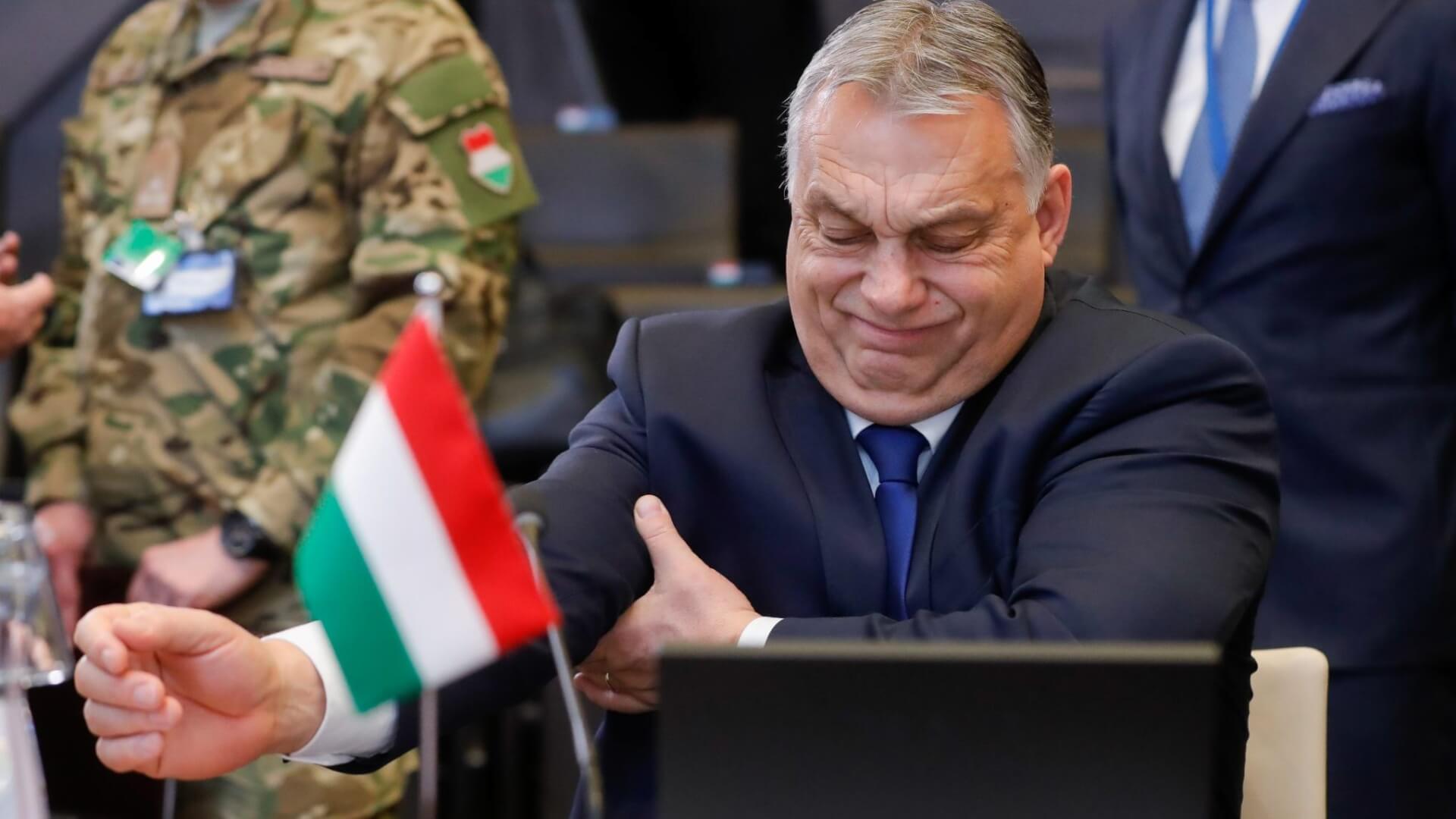In a quick turn of events, Hungary on Monday approved the European Union’s (EU) $19 billion aid package for Ukraine after the bloc agreed to reduce the amount of recovery funds it has blocked Budapest from accessing over rule of law concerns.
Hungary vetoed the plan just last week after the bloc said it was freezing $7.8 billion in funds to Budapest.
Reuters quoted an EU diplomat saying, “There is a deal: Hungary lifts its vetoes on the global minimum corporate tax and the 18 billion euros for Ukraine and the percentage of cohesion funds to be frozen will be reduced to 55% of the total and it will get its recovery plan approved.”
The $19 billion package seeks to help Ukraine overcome its budget shortfalls for 2023. Until now, Ukraine has only received bilateral loans from member states.
The plan will now be presented before the European Parliament, which is set to approve it on Tuesday, and will be formalised on Wednesday. Thereafter, the bloc can dispense the aid in January.
#COREPERII | ⚡⚡⚡Megadeal! EU ambassadors approved in principle a package of €18 billion in support for #Ukraine, 15% minimum #tax for big corporations, approval of #Hungary's #RRP and an agreement on #conditionality. The package will be confirmed by written procedure. pic.twitter.com/L5bcCGETMU
— EU2022_CZ (@EU2022_CZ) December 12, 2022
The compromise between the EU and Hungary will also allow it to finally ratify the minimum global corporate tax rate, which it advocated for alongside 130 countries in July 2021 but has been unable to ratify. As a result, the EU will be able to introduce a 15% tax on companies that have a turnover of over $790 million.
Hungarian Prime Minister Viktor Orbán has been leveraging his veto power and blocking key proposals to pressure members into releasing recovery funds to Budapest for some time now.
The EU requires unanimous support from all 27 members to pass policies. While the bloc attempted to take an alternate route to the Ukraine package by drafting a proposal that required guarantees from just 26 members, they decided against the plan to order to maintain unity.
As a result, Budapest convinced the EU to reduce the frozen funds from $7.8 billion to $6.65 billion in exchange for lifting its veto on critical resolutions such as the Ukraine aid package.
NOTE: A total of 12,1 billion euros of EU funding to #Hungary will now be frozen (including RRP), thanks to Conditionality regulation negotiated by the #EuropeanParliament and @EUCouncil in 2020. This is #RuleOfLaw at work! @EGardiazabal @katka_cseh @moritzkoerner @daniel_freund https://t.co/qIqWa1Wcq1
— Petri Sarvamaa (@petrisarvamaa) December 12, 2022
Members also approved Hungary’s spending plan for its $6.1 billion pandemic recovery fund, which the bloc has rejected for over a year and a half over concerns about the worsening human rights situation in the country.
Hungary has vowed to deploy 48.1% of its fund for climate action in line with the National Energy and Climate Plan 2021-2030. It will introduce infrastructural changes to enhance reliance on renewable energy sources and improve overall air quality.
In addition, it will expend 29.8% of its allocation to digital transition, complying with the European Council’s country-specific recommendations. The plan also includes a framework to introduce key institutional reforms to bolster the rule of law.
Hungary will now receive the entire amount of the pandemic recovery package by 2026.
Poland has expressed reservations about the delivery of funds to Hungary. However, EU diplomatic officials cited by Politico say it is likely to withdraw its objections by Wednesday.
Hungary was able to get Brussels to unfreeze part of the funds intended for it, so that Budapest lifted its veto on some important issues, including 18 billion in macro-financial assistance for Ukraine.
— Iuliia Mendel (@IuliiaMendel) December 13, 2022
The Netherlands and Sweden initially called for the suspension of the entire $7.8 billion package for Hungary but eventually agreed to make concessions.
Meanwhile, France and Germany called for the frozen funds to be proportionate to Hungary’s actions in compliance with the bloc’s proposal.
However, members made the release of the funds contingent upon certain commitments by Hungary, particularly the 27 reforms it has outlined to address corruption and ensure judicial independence.
The European Council’s press release said Hungary’s reforms have been “affected by significant weaknesses” that impact its ability to address the bloc’s rule of law concerns. To this end, it said that the measures it has implemented so far are not “fully satisfactory.”
The EU's freezing of budget funds to Hungary likely triggered Viktor Orban's vote. Orban would also want the EU to expedite its distribution of pandemic recovery funds
— Samuel Ramani (@SamRamani2) December 6, 2022
Based on the EU's statement, Hungary stood alone in opposing expedited aid to Ukraine
It also warned that the decision could be “temporary” and could be reversed.
Inflation in the eastern European country has surged to 26%. The Hungarian central bank has warned that inflation could stay as high as 15-18% next year, demanding the government to remove price caps on fuel, food, and mortgages.
Securing additional funds will be a complicated ordeal, given its reluctance to fulfil the 27 rule of law reforms recommended by the bloc. The bloc has often raised concern about the country’s democratic backsliding, particularly on issues such as LGBTQI rights, media freedoms, judicial independence, and protection of academics and non-governmental organisations.

